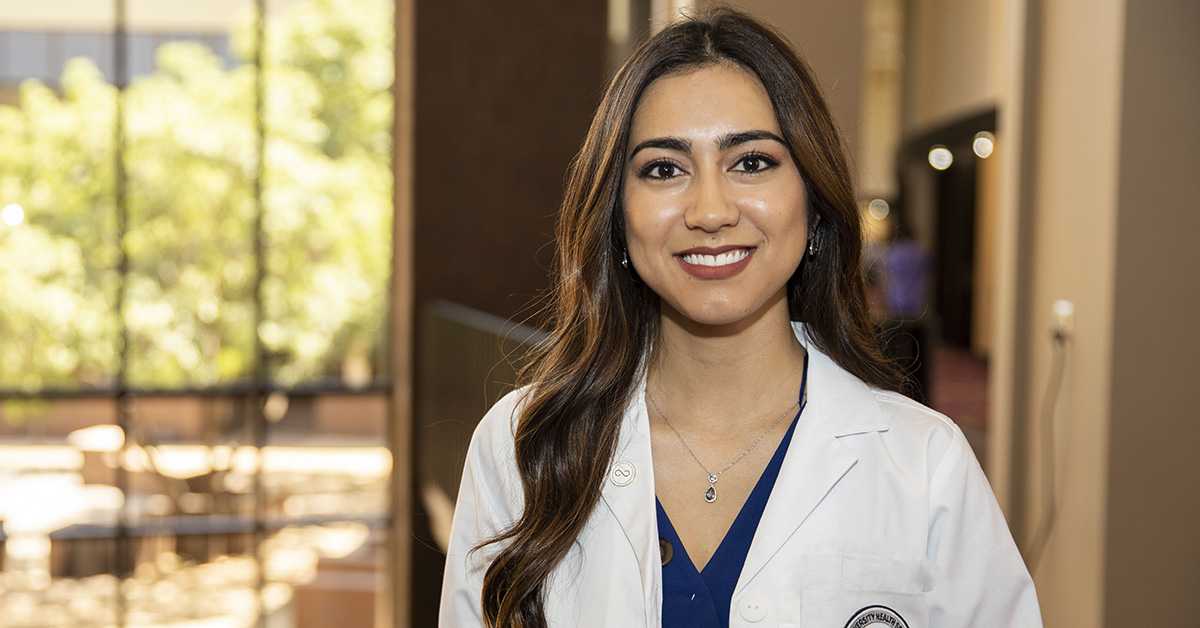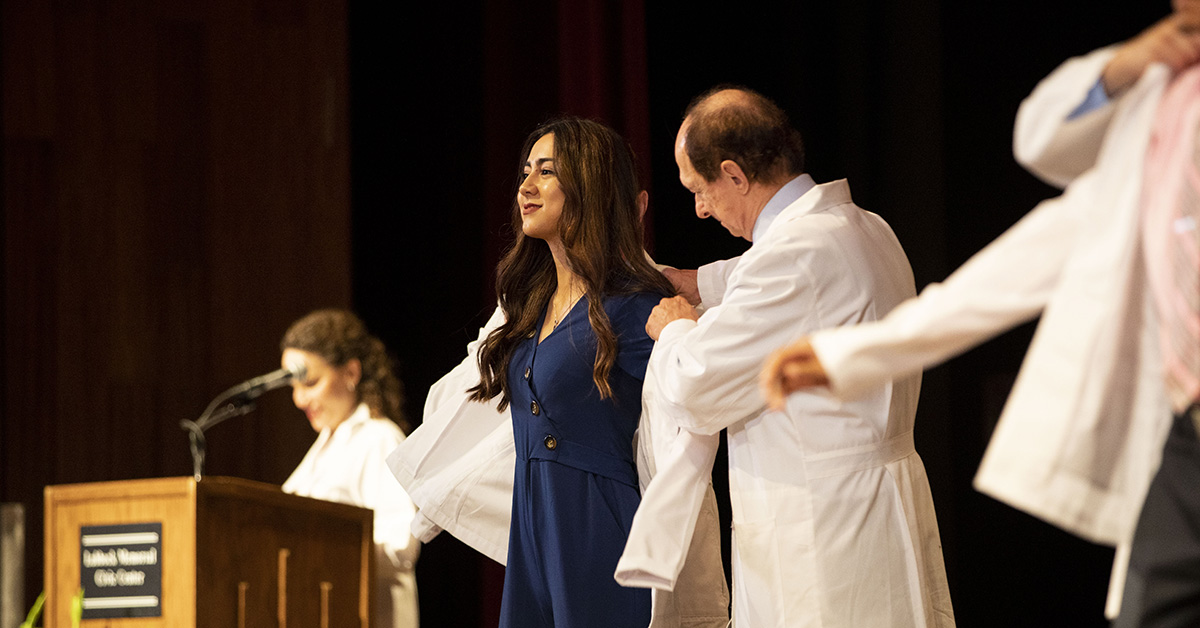From War-Torn Afghanistan to Medical School— Working for a Life of Service

In 2000, Susan Sherali remembers being 6 years old when she along with her parents
and eight brothers and sisters fled their village in Afghanistan to a village they
were told would be safer for their family. Her family along with the rest of the village
found out it was not.
“That night, the Taliban came and took over the village and I remember the bullets
flying across the sky at night and all the sounds,” Sherali said. “That next morning
we had to escape and leave everything behind. My parents were panicking. There was
a fear for your life. It's fear of the safety of your loved ones. And you have no
control over it, but only escaping to get out. When you go through something like
that at a young age, you won't forget the details. Until growing up, reflecting back
on it, I now know the true magnitude of it. When I was a kid, I didn't know why we
were leaving home, leaving everything behind and most importantly why we couldn't
leave with my father.”
Sherali’s father knew in order to get his family to safety, he would have to stay
behind. He made the difficult decision to put his family on a bus and told them he
would catch up with them. He would not be able to have contact with his family for
six years.
From Afghanistan, the family first went to Pakistan where they were listed as refugees.
Sherali’s mother and brothers and sisters were one of the first families who migrated
to the United States because of the war in Afghanistan during the Taliban regime.
They arrived in Amarillo, Texas, in May 2000 without knowing a word of English and
no family or friends in the area. The family worked hard through the years. Sherali
said seeing the opportunities offered in the U.S. led her to think of what she could
contribute once she grew up.

“Here, I can become anything I want,” Sherali said. “And seeing all this, I didn't
want to waste it. I thought, ‘What can I do that no one can take away from me?’ In
Afghanistan, you could be stripped of your job at any time. But a physician was still
a physician because that's knowledge and power that nobody can take away from you.
I saw my own father always offer medical care and help people in our community growing
up.”
As she grew up in Texas, Sherali said her experiences helped build her character by
teaching her perseverance. She would be a first-generation college student and attend
Amarillo College and then later transferred to Texas Tech University where she earned
her undergraduate degree in biology with a minor in chemistry and Arabic. Knowing
she wanted to become a physician, she completed a master’s degree in molecular pathology
at the Texas Tech University Health Sciences Center (TTUHSC) School of Health Professions.
She knew she wanted to continue her education at the TTUHSC School of Medicine.
“TTUHSC School of Medicine was my top choice because of the people and the quality
of education,” Sherali said. “Because I've been waiting so long for this point in
my life, especially for a girl from Afghanistan, to get to this point of receiving
my white coat for medical school, I'm deeply honored and so happy. But at the same
time, I realize the magnitude of responsibility that also comes with it. It's a privilege
and humbling to know that I am training to be a person that people are going to put
all their trust in their most vulnerable time. I will work hard to be the best physician
for the patient.”
Related Stories
Celebrating Veterans: TTUHSC’s General Martin Clay’s Legacy of Service and Leadership
From his initial enlistment in the Army National Guard 36 years ago to his leadership in military and civilian health care management roles, Major General Martin Clay’s career has been shaped by adaptability, mission focus and service to others.
Texas Tech University Health Sciences Center School of Nursing Named Best Accelerated Bachelor of Science in Nursing Program in Texas
The TTUHSC School of Nursing Accelerated Bachelor of Science in Nursing (BSN) program has been ranked the No. 1 accelerated nursing program in Texas by RegisteredNursing.org.
TTUHSC Names New Regional Dean for the School of Nursing
Louise Rice, DNP, RN, has been named regional dean of the TTUHSC School of Nursing on the Amarillo campus.
Recent Stories
The John Wayne Cancer Foundation Surgical Oncology Fellowship Program at Texas Tech University Health Sciences Center Announced
TTUHSC is collaborating with the John Wayne Cancer Foundation and has established the Big Cure Endowment, which supports the university’s efforts to reduce cancer incidence and increase survivability of people in rural and underserved areas.
TTUHSC Receives $1 Million Gift from Amarillo National Bank to Expand and Enhance Pediatric Care in the Panhandle
TTUHSC School of Medicine leaders accepted a $1 million philanthropic gift from Amarillo National Bank on Tuesday (Feb. 10), marking a transformational investment in pediatric care for the Texas Panhandle.
Texas Tech University Health Sciences Center Permian Basin Announces Pediatric Residency Program Gift
TTUHSC Permian Basin, along with the Permian Strategic Partnership and the Scharbauer Foundation, Feb. 5 announced a gift that will fund a new pediatric residency.
